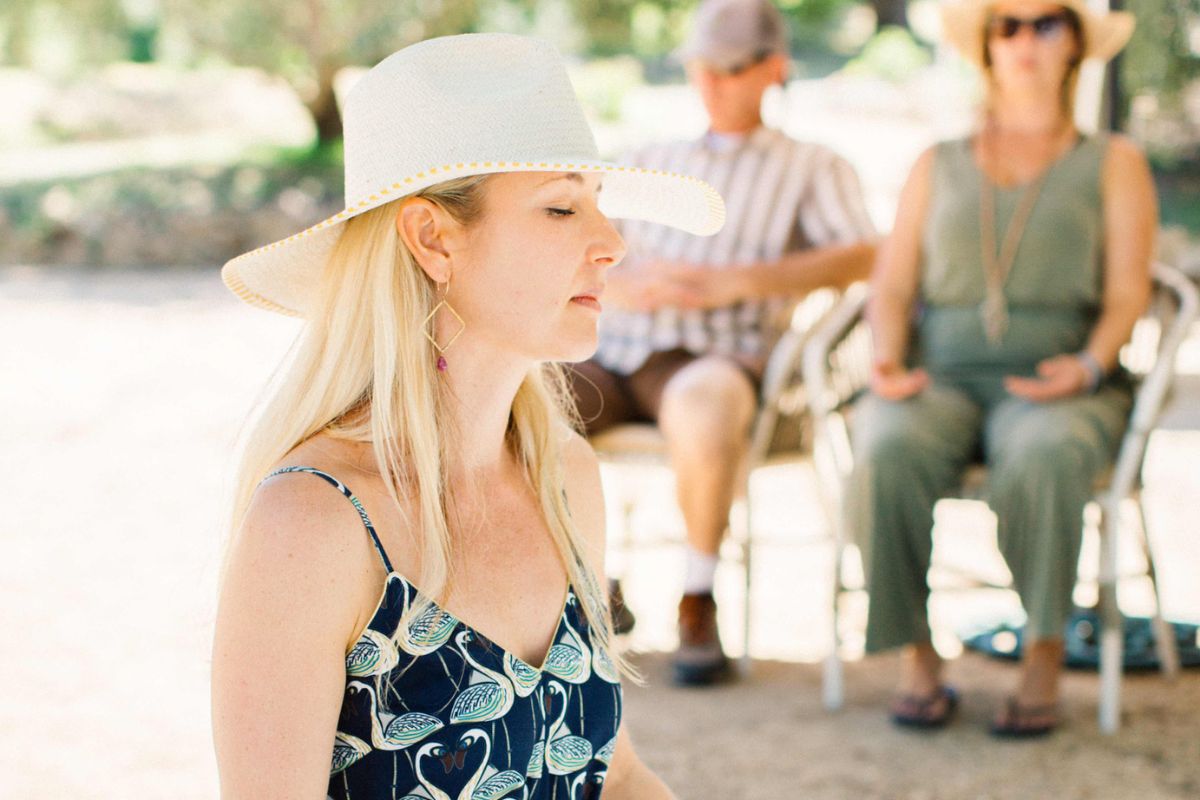Put your values and strengths into action.
There are four questions I ask myself before taking on a new project:
- Does it contribute to the life I want to build?
- Does it use my natural gifts and strengths?
- Does it serve more than just me?
- Is it fun?
I often describe myself as having an ambivalent relationship with ambition. It’s what helps me achieve my goals, but also what leads to self-focus, ridigity and depletion.
Many strivers feel like they have to choose between ambitions, or give up when they aren’t the best. Either you are all in or you are all out. The practice of “wise effort” offers us another way to enter this paradox without having to resolve it.
With curiosity, flexibility and values-based action your can turn your wrecking ball of ambition into a pendulum of wise effort—gently moving with effort and effortlessness.
An Integrative View On Wise Effort
In Buddhism, wise effort is a step in the Eightfold Path to freedom. Wise effort is described as the purposeful dedication of your energy toward what is wholesome (i.e., helpful) and abandoning what is unwholesome (i.e., unhelpful).
In positive psychology, wise effort is rising to life’s challenges with a growth mindset, taking values-based risks, staying present and open, and savoring the good along the way. Wise effort is welcoming “good stress” that bolsters your cellular and mental resilience and practicing deep rest to prevent toxic stress and allostatic overload from wearing down your brain and body.
Wise effort is two interdependent elements:
- Wisdom: Clarity coming from self-examination, knowing your values and strengths, and gathering knowledge of established sources;
- Effort: Applying your energy in the right amount, with flexibility and determination, in the directions that matter to you.
Values and Strengths
Wise effort is about knowing where to dedicate your energy and how much to put forth. Choosing activities from your values motivates you to act with determination and enthusiasm. For example, consider the energy surge you get when helping a good friend in trouble or volunteering for a cause you love.
Applying your strengths allows you to do what comes naturally to you. For example, if you have a personal strength in social intelligence, you may find it easier to live out your values when doing things with others. If you have a strength in leadership, it may be easier to live out your values when you are at the helm.
Values x Strengths = Wise Effort
How can you practice wise effort today? Try these actions:
1. Choose values.
Pause before saying “yes” or entering into a new activity. Ask yourself:
- How can I use my effort here to contribute to the life I want to build?
- Does this energize me and bring me vitality?
- How can my efforts benefit my well-being and others at the same time?
2. Apply your strengths.
Identify your strengths, which are the gifts that come easily to you. Ask yourself:
- How can I apply my personal gifts to this activity?
- How can I use my strengths when faced with challenges and barriers?
- How can my strengths complement my values?
3. Have fun.
Many high achievers put aside fun for a future date once they’ve achieved their goals. There’s an achievement fallacy, however. In my interview with Dr. Mike Rucker, author of The Fun Habit, he shared “Happiness is something you feel. Fun is something you do.” Ask yourself:
- Are you setting aside time each day and week for fun? Do you savor pleasurable experiences?
- Dr. Rucker recommends we generate a “fun file,” a list of 8-15 enjoyable activities to do. What would you include in your fun file?
- How can I engage in one fun file activity each day?
4. Engage in constructive rest.
Many high achievers do not like downtime, stillness, or rest. However, stress researchers consistently show that restful activities (e.g., whether meditation, legs up the wall, or time in nature) are vital to our stamina, resilience, and ability to bounce back after a stessful event. Try one of these activities to balance good stress with constructive rest.
- Rest your mind: Try guided meditation or yoga.
- Rest your body: Take some short ultradian breaks throughout the day.
- Give your whole being a rest: Immerse yourself in nature, do a creative art project, or play!
“Any positive energy we put toward ourselves or others creates an atmosphere of love and compassion that ripples out and out—who knows how far?” —Pema Chodron

+ show Comments
- Hide Comments
add a comment